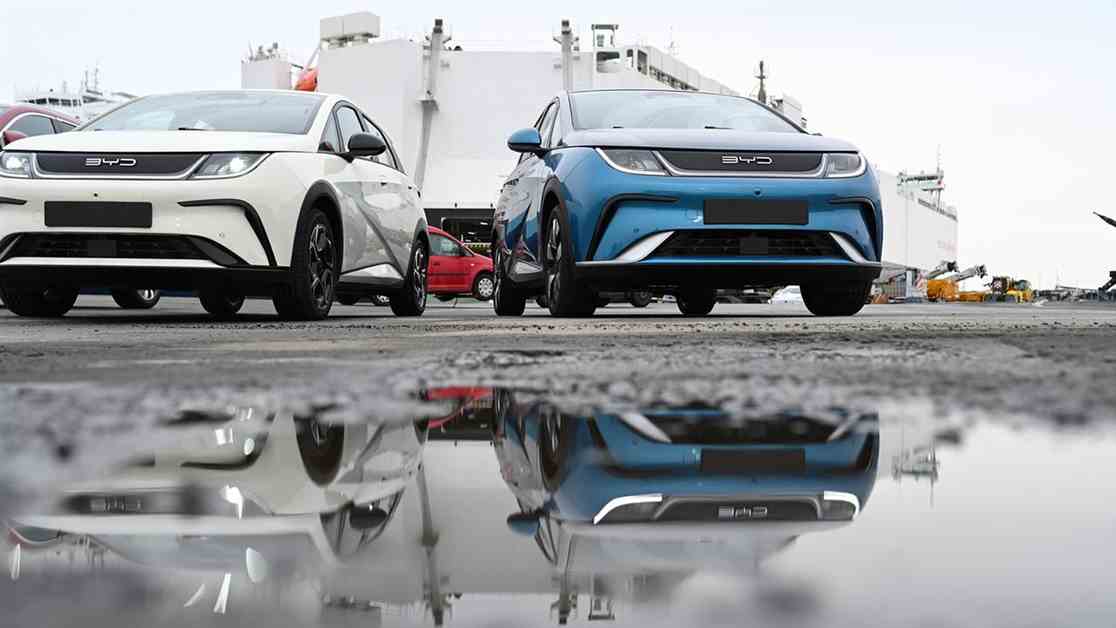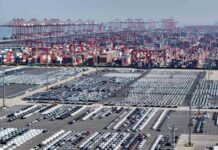The EU has decided to impose tariffs on electric cars from China, as they believe there is unfair competition. Germany is critical of these measures.
In the fall, Brussels warned Beijing, and now the EU Commission is taking action. If China does not comply, high tariffs on the import of electric vehicles from the People’s Republic into the EU will be imposed by early July – ranging from 17 to 38 percent depending on the manufacturer.
Specifically, the EU will tax BYD cars at 17.4 percent, Geely at 20 percent, and SAIC at 38.1 percent. Other Chinese automakers will face tariffs of 21 percent or 38.1 percent if they did not cooperate with the EU’s anti-subsidy investigation that has been ongoing for eight months. The current rate is at ten percent.
The EU Commission accuses China of distorting competition through massive state subsidies, artificially keeping prices low, which disadvantages European manufacturers.
The US government increased import tariffs on electric vehicles from China from 25 to 100 percent four weeks ago. Experts speculate that this move by President Joe Biden was for domestic political reasons.
EU Commission President Ursula von der Leyen stated that the EU’s approach is more targeted and tailored compared to the US. The tariffs imposed by Brussels correspond to the extent of the damage caused by China’s unfair practices.
European Parliament members from the Union and the Greens welcomed the Commission’s announcement as a strong signal against unfair competition. The German Association of the Automotive Industry (VDA) views EU tariffs critically, warning of trade conflicts with disadvantages for all parties involved.
While Paris demands tariffs, the German government is more cautious due to its close ties with China. The EU Commission will only refrain from imposing tariffs if China quickly complies, which seems unlikely. Chinese brands are selling more in the EU, with nearly a fifth of electric vehicles sold in Europe last year being manufactured in China.
According to the Kiel Institute for the World Economy, companies in China receive nearly nine times more state support than those in Europe and the US. Beijing provides direct purchase incentives to manufacturers producing electric cars only in China, disadvantaging imported vehicles. BYD is reportedly the largest recipient of these state subsidies.















